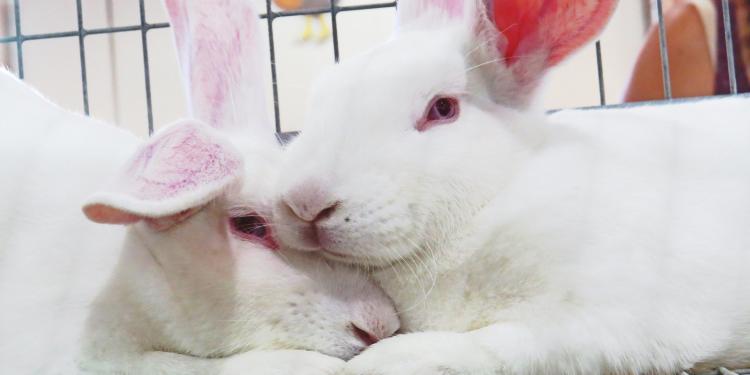
kennethkonica
#Act4
LabAnimals
Animal Free Research UK condemns the wasted opportunity to make real progress in reducing animal experiments
18 August 2020
News
Animal Free Research UK has condemned yet another wasted opportunity to make real progress with a decrease of just 3.4% in experiments on animals (3.40 million) in GB laboratories in 2019, announced by the Home Office. The total number of animals genetically altered (created) or used for the first time was 3,325,708 (3,444,055 in 2018), a decrease of only 3.4% on the previous year.
The creation of genetically modified animals who were bred but not used in experiments accounted for 50.1% of all animals (1,666,490 animals), down 3.0% on the previous year (1,717,201 in 2018). The total number of animals who used for the first time in experiments was 1,659,218, down 3.9% on 2018 (1,726,854 animals).
Experiments on animals for basic research accounted for 56.9% of all animal experiments (984,316 experiments), up 0.2% on the previous year (982,270 experiments in 2018). Basic research aims to answer scientists’ questions about specific knowledge gaps, often for medical research in the hope that it will lead to treatments for human diseases.
The statistics were revealed just days after 77 leading scientists and academics published an open letter in the Guardian calling for an acceleration in human-focused medical research in the context of the COVID-19 pandemic, which has forced a reappraisal of what is necessary to deliver safe and effective medicines as quickly as possible. The call highlights the break from the linear process requiring animal trials before clinical trials with human relevant research approaches being prioritized in the search for a COVID-19 vaccine, setting a powerful precedent for how medical research is carried out.Read more at source

